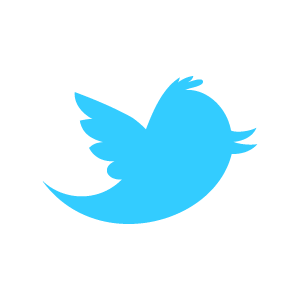Twitter: A warning from a wise web thinker
 Last week I wrote a post that said if you are in any part of the journalism game, even as a hobby, and you’re not on Twitter, you’re missing out on a valuable tool, and you’re in danger of not being taken seriously by people who could be giving you opportunities.
Last week I wrote a post that said if you are in any part of the journalism game, even as a hobby, and you’re not on Twitter, you’re missing out on a valuable tool, and you’re in danger of not being taken seriously by people who could be giving you opportunities.
In the interest of fairness, though, I want to point out what software developer and web thinker Dave Winer has been writing about Twitter in the last couple of weeks.
Though Winer uses Twitter, he has long expressed wariness of it because, while most users think of it as a neutral platform like the web, it is in fact a private company. That means that, unlike the open-source web, it has its own interests at heart, not those of the public. It also means that if one company, Twitter, fails in the short or long term, a platform that people have come to rely upon goes away.
Winer’s first salvo in his recent Twitter commentary was aimed at people in the journalism game: “News guys,” he wrote, “Twitter is not your friend.”
Everywhere I look in news, and I spend a lot of my time looking at news — I see the industry making what I think is a fatal mistake. They seem to think Twitter is benign. As if it were the web, which of course isn’t benign either, but at least it’s neutral. Twitter, on the other hand, is imho a competitor to all the news organizations …
It’s not enough to understand where an entity is today. You have to factor in where they came from and use that to infer where they’re going. Twitter started off being open to anyone for anything. But over time they’re closing things off. Adding rules, some of which clearly anticipate competition, that limit how their service can be used. They have been taking functionality off the table. And it’s a reasonable bet that that process will continue, not reverse.
A few years ago I was so sure that Twitter would be competing with news orgs that I urged them to start their own realtime networks to compete with Twitter. Just in case I’m right.
Yesterday Winer noticed that Twitter is not a level playing field. That is, tweets from different reporters get different graphical treatment, with some links expanding into full summaries of the story linked to.
These are decisions being made by a private corporation, without explaining how or why one publication gets preferential treatment over the others. They, of course, are entitled to do this. But no one should think that this is a level playing field, that all content is treated equally, because that is not true …
They are not treating the content equally. It is not a level playing field, and the basis for tilting the field is not visible. I imagine some journalism purists might argue that this already disqualifies Twitter as a platform for journalism.
Later in the day, Twitter announced Twitter Cards, which allow websites to post expanded tweets, beyond the 140-character limit, and with media attached. “Something I’ve been asking for, for years,” Winer wrote today. “But [it's] not for you and me. Just for their corporate partners.”
All of this is to point out what Winer is saying: Twitter is not a benign, neutral presence. It’s a business, and its own interests are No. 1, and at some point those interests could conflict with yours or those of the organization you’re working with.
All of that said—and I’ve been agreeing with Winer that we need useful alternatives to Twitter for years—it’s still unwise to ignore Twitter.
Unless you’re busy developing an alternative.
-
imapone

